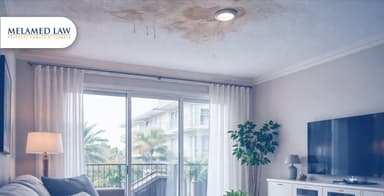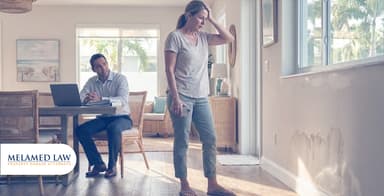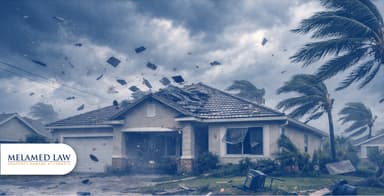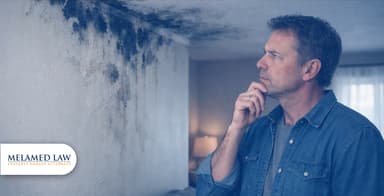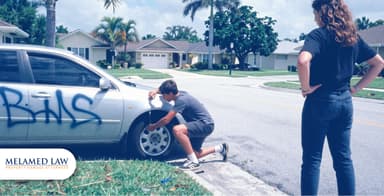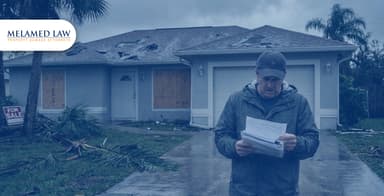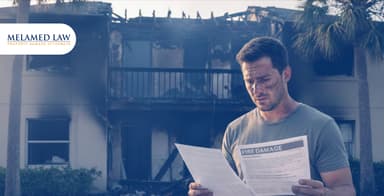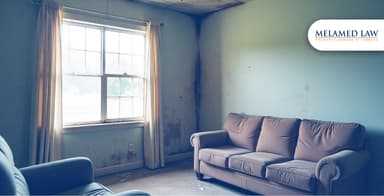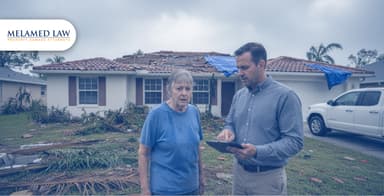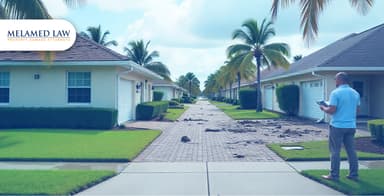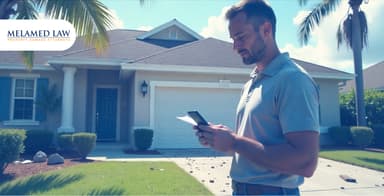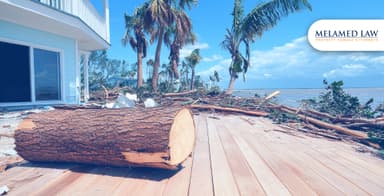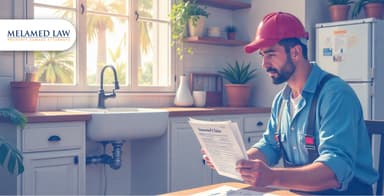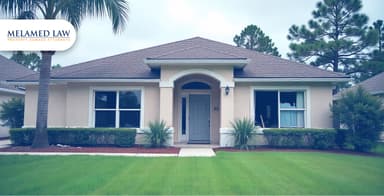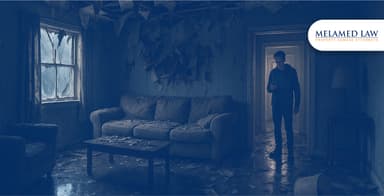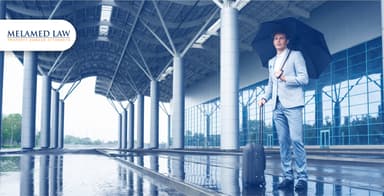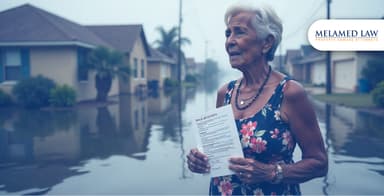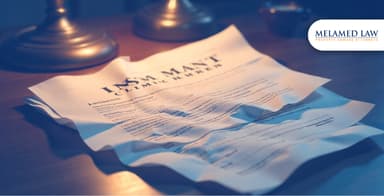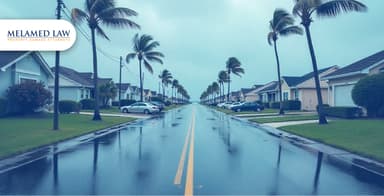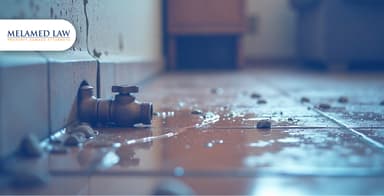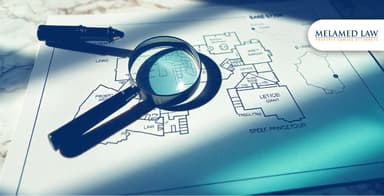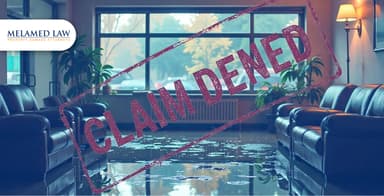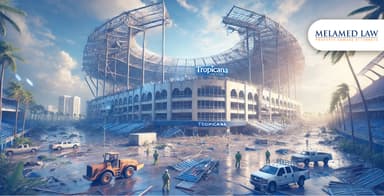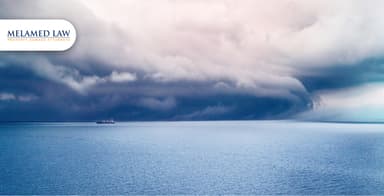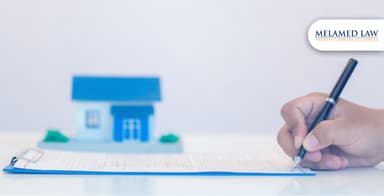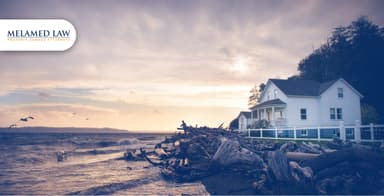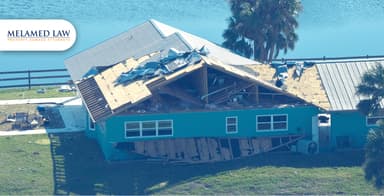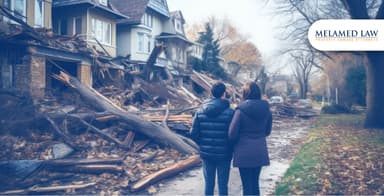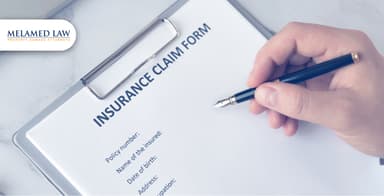
How to Handle a Storm Damage Insurance Claim in Florida
When the unexpected happens, we help individuals and businesses collect the money they deserve for their insurance claims.
June 18, 2025
How to Handle a Storm Damage Insurance Claim in Florida
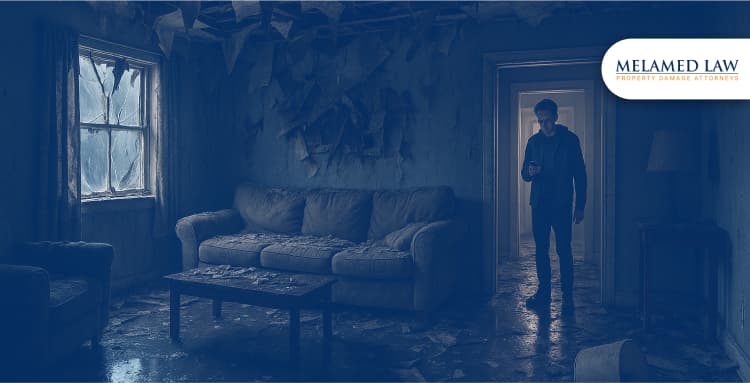
They say the storm ends when the winds die and the rain fades—but anyone who’s lived through one knows better. The real storm, the one no one sees, begins after. It begins in the silence, when the power's still out, when you walk room to room and count everything you’ve lost.
That’s when you remember you have insurance. And for a moment, there’s relief. Maybe this won’t be so bad. Maybe someone will help. Maybe the system will work.
However, then the calls start. The repetitive hold music, the adjuster seems polite but vague. And soon, you realize this isn’t a rescue. It’s a negotiation. One where the other side holds all the cards unless you know how to play back.
That’s what this is about. Not just how to file a storm damage claim, but how to protect what’s yours in a system that doesn’t always play fair. And when you’re tired of fighting, Melamed Law is here, not just as lawyers, but as the kind of advocate you'd want on your side in any storm.
1) The Florida Homeowner’s Dilemma: Damage vs. Denial
There’s a common belief that once you’ve paid your premiums, your insurance company will step in seamlessly when disaster strikes. However, in practice, filing a storm damage claim in Florida often reveals a much harsher truth: insurance is a business, and like any business, it’s built to protect its bottom line.
This means that even legitimate, well-documented claims can be met with resistance. Not necessarily because the damage isn’t covered, but because adjusters, while professional, are employed by the insurer. Their assessments often lean toward minimizing payouts, not maximizing your recovery.
Storm-related damage is rarely straightforward either. Roof systems might look intact from the street, but have compromised shingles or flashing. Water intrusion can seep behind drywall or under flooring, creating mold colonies that don’t appear until weeks later. And what about electrical or HVAC systems? A surge or hidden short can be easy to miss in the initial inspection, but expensive to repair.
According to FEMA, high winds cause billions of dollars in damage each year, with Florida ranking among the most affected states.
(Source: National Center For Environmental Information)
In these situations, relying on the hope that your insurer will “do the right thing” is a gamble. And when your home, your comfort, and your finances are at stake, you can’t afford to approach your claim as a request for help. It has to be a case. A negotiation backed by preparation, evidence, and, when needed, legal pressure.
2) The Strongest Claims Start With the Right Steps
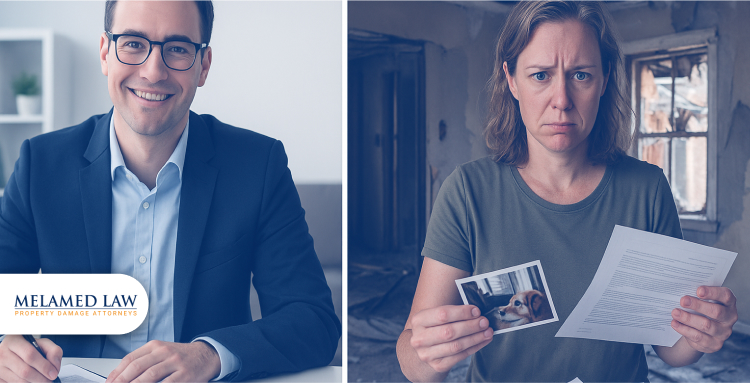
The aftermath of a storm can feel chaotic, but what you do in the first few days can determine the strength and success of your insurance claim.
Start with clear, timestamped evidence. Walk through every room and corner of your property, inside and out. Photograph damage in natural light when possible, and include both wide shots and detailed close-ups. A brief video walkthrough with narration adds valuable context, especially for areas that don’t photograph well—think ceilings, crawlspaces, or water-soaked flooring.
Protect your home, not the insurer’s case. Cover what you must, but leave the evidence intact as much as possible. Premature cleanups or fixes can weaken your claim’s foundation.
Know what your policy says, but know its limits. Many homeowners are surprised to learn how much is buried in exclusions, deductibles, and technical language. A surface read can’t reveal how your insurer will interpret it, and interpretation is everything in this process.
Be careful what you say, and to whom. A recorded statement may sound routine, but even offhand comments can be used to shift liability or downplay damages. It’s always smart to pause and seek guidance before handing over anything more than basic facts.
And finally, get professional help before problems begin. You don’t need to wait for a denial to speak to an attorney. In fact, bringing in legal counsel early can help you avoid the very pitfalls that cause delays, underpayments, or outright rejections.
3) Melamed Law: Your Voice in a System That’s Built to Silence You
The moment you bring us in, we start building your claim with precision. That means collecting the right evidence, preserving key records, and ensuring your voice is heard from the start.
In Florida, wind-related claims are among the most common, with over 700,000 insurance claims filed after Hurricane Ian alone.
(Source: Central Florida Public Media)
We understand how insurers operate. They bank on vague language and missed deadlines to minimize payouts. Our team knows how to interpret complex policy language and identify where coverage applies, especially in storm-related cases.
When the numbers don’t add up or negotiations stall, we don’t hesitate to take a stand. Whether it’s pressing for a fair settlement or taking your case to court, we pursue every legal avenue to protect your property.
4) We’ve Been Through the Storms Too, And We Fight Like It
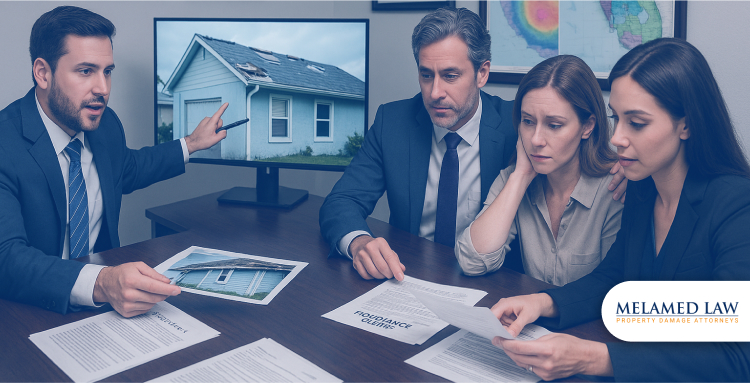
We’re not parachuting in after a disaster—we’ve been here all along. Melamed Law is rooted in Florida, and that means we understand not just the law but the storms themselves. We’ve seen firsthand how hurricanes, tropical storms, and high winds leave families scrambling—not just to repair their homes, but to make sense of their insurance policies.
Our team has helped Florida homeowners recover settlements after insurers tried to underpay or delay rightful claims. We’ve handled cases involving everything from roof collapses to water intrusion to total property loss, and we do it with a full understanding of what recovery really looks like in this state.
And this isn’t just where we work—it’s home. Our clients aren’t just case numbers; they’re neighbors, families, and homeowners who deserve to be treated with respect. That’s the standard we set for every case we take on.
5) The Smartest Move After the Storm? Call Melamed Law First
You don’t have to accept the first offer or any offer that doesn’t fully cover your losses. Insurance companies count on homeowners feeling overwhelmed, rushed, or unsure of their rights. However, you have options, and they begin with a phone call to Melamed Law.
We’re here to step in when the process gets tough and to make sure your claim is handled fairly, lawfully, and with your best interests in mind. Our legal team knows how to challenge unfair evaluations, push back against delays, and demand what you're truly owed under your policy.
Recent Cases
